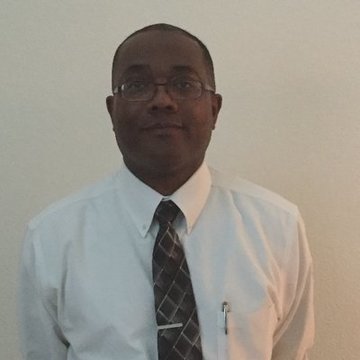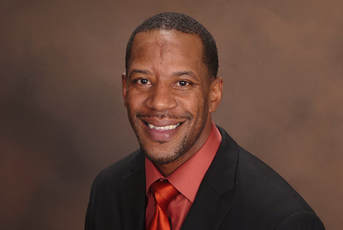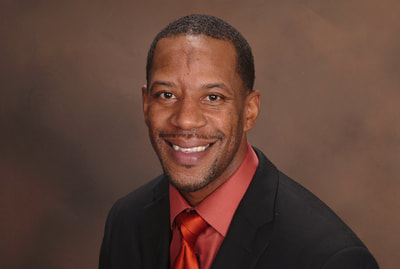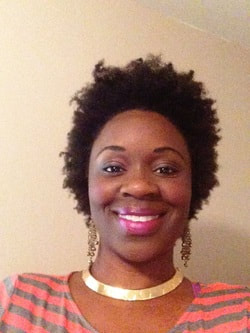K-12 African American Educators
Scroll below to select research from the following scholars
 @VNixon1988
@VNixon1988
Dr. Victor Nixon @VNixon1988
Title: Instructional Leader, Author, Assistant Principal
Dr. Mike Robinson: Why is the title of your research so long? And how does it support the work of researchers?
Dr. Victor Nixon: I wanted to be as specific as possible so that researchers do not waste their time if my actual research area is not what they are looking for.
Research Topic: The Relationship Between the Percentage of African-American Teachers on Public School Secondary Campuses and the Percentage of African-American Students Passing the Texas Assessment of Knowledge and Skills test (TAKS)
Committee Chair: Shante’ Moore-Austin, Ph.D.
Institution: Liberty University
Abstract: No Child Left Behind has caused educators to take a critical look at the achievement levels of all population groups on campus. African-American student achievement can no longer be masked by the achievement levels of other student populations. Educators must develop strategies to reduce the African-American achievement gap in order to meet Adequate Yearly Progress. This study examined the relationship between the percentage of African-American teachers on secondary Texas campuses and African-American student achievement. Academic achievement was measured by the use of the Texas Assessment of Knowledge and Skills Test (TAKS). The American College Test (ACT) and the Scholastic Aptitude Tests (SAT) were used as well. Bivariate Spearman correlations were conducted on all testing categorical data. The results of the study indicated either a significant negative relationship or no significant relationship at all between the percentage of African-American teachers and the percentage of African-
American secondary student’s achievement as measured by the TAKS, ACT, and SAT assessments.
Title: Instructional Leader, Author, Assistant Principal
Dr. Mike Robinson: Why is the title of your research so long? And how does it support the work of researchers?
Dr. Victor Nixon: I wanted to be as specific as possible so that researchers do not waste their time if my actual research area is not what they are looking for.
Research Topic: The Relationship Between the Percentage of African-American Teachers on Public School Secondary Campuses and the Percentage of African-American Students Passing the Texas Assessment of Knowledge and Skills test (TAKS)
Committee Chair: Shante’ Moore-Austin, Ph.D.
Institution: Liberty University
Abstract: No Child Left Behind has caused educators to take a critical look at the achievement levels of all population groups on campus. African-American student achievement can no longer be masked by the achievement levels of other student populations. Educators must develop strategies to reduce the African-American achievement gap in order to meet Adequate Yearly Progress. This study examined the relationship between the percentage of African-American teachers on secondary Texas campuses and African-American student achievement. Academic achievement was measured by the use of the Texas Assessment of Knowledge and Skills Test (TAKS). The American College Test (ACT) and the Scholastic Aptitude Tests (SAT) were used as well. Bivariate Spearman correlations were conducted on all testing categorical data. The results of the study indicated either a significant negative relationship or no significant relationship at all between the percentage of African-American teachers and the percentage of African-
American secondary student’s achievement as measured by the TAKS, ACT, and SAT assessments.
| dr._victor_s._nixon__dissertation__1_.pdf | |
| File Size: | 914 kb |
| File Type: | |
 @DarielDTHenry
@DarielDTHenry
Dr. Dariel “D.T.” Henry
Title: Academic Advisor, Dean College
Research Topic: Effective Strategies for Recruiting African American Males into Undergraduate Teacher-Education Programs
Institution: Johnson &Wales University
Committee Chair: Cynthia V. L.Ward, Ed.D
Abstract: In 2011, the U.S. Secretary of Education launched a national campaign urging black males to choose teaching as a career with the ambitious goal of adding 80,000 black male public-school teachers by 2015 (Teach Campaign, 2011). This campaign, coupled with recent reports, suggests students should encounter a wide diversity of teachers (Boser, 2011; Byrd et al., 2011). Arguments have been made that teacher diversity should include gender, race, and socio-economic status (Angus & Oliveira, 2012). This study focused on an important aspect of this problem: African American males. This mixed-methods sequential descriptive study inquired about effective strategies for recruiting African American males into undergraduate teacher-education programs. The study employed multiple data collection methods: reviewing the literature, accessing institutional websites and other online recruitment materials; sending an inquiry letter, and interviewing those responsible for recruiting prospective teacher-education undergraduates. Four research questions guided the study.1.What strategies are presented in the literature as best practices for recruiting males and African American males, in particular, as undergraduates into teacher-education programs?2.What strategies do institutions use to recruit males and African American males, in particular, into undergraduate teacher-education programs?3.What do program leaders perceive as effective strategies, and barriers to those strategies, for recruiting males and African American males into undergraduate teacher-education programs?4.Based on the research results, what effective strategies and barriers to those strategies are identified for attracting African American males into undergraduate teacher-education programs? The literature review disclosed that the Call Me Mister programs were the most active and successful in attracting African American males into teacher-education. The websites of a random sample of undergraduate teacher-education programs (N = 1,500) revealed that few traditional colleges and universities (2%) used their websites to attract undergraduate males into teacher-education programs and fewer targeted African American males (1%). The interviews (N = 7) identified several effective strategies in use: offering institutional scholarships; finding other financial support; recruiting actively; forming community partnerships; achieving a critical mass; and seeking internal institutional support. Building upon these strategies, a series of recommendations are put forth for leaders of teacher-education programs to consider.
Title: Academic Advisor, Dean College
Research Topic: Effective Strategies for Recruiting African American Males into Undergraduate Teacher-Education Programs
Institution: Johnson &Wales University
Committee Chair: Cynthia V. L.Ward, Ed.D
Abstract: In 2011, the U.S. Secretary of Education launched a national campaign urging black males to choose teaching as a career with the ambitious goal of adding 80,000 black male public-school teachers by 2015 (Teach Campaign, 2011). This campaign, coupled with recent reports, suggests students should encounter a wide diversity of teachers (Boser, 2011; Byrd et al., 2011). Arguments have been made that teacher diversity should include gender, race, and socio-economic status (Angus & Oliveira, 2012). This study focused on an important aspect of this problem: African American males. This mixed-methods sequential descriptive study inquired about effective strategies for recruiting African American males into undergraduate teacher-education programs. The study employed multiple data collection methods: reviewing the literature, accessing institutional websites and other online recruitment materials; sending an inquiry letter, and interviewing those responsible for recruiting prospective teacher-education undergraduates. Four research questions guided the study.1.What strategies are presented in the literature as best practices for recruiting males and African American males, in particular, as undergraduates into teacher-education programs?2.What strategies do institutions use to recruit males and African American males, in particular, into undergraduate teacher-education programs?3.What do program leaders perceive as effective strategies, and barriers to those strategies, for recruiting males and African American males into undergraduate teacher-education programs?4.Based on the research results, what effective strategies and barriers to those strategies are identified for attracting African American males into undergraduate teacher-education programs? The literature review disclosed that the Call Me Mister programs were the most active and successful in attracting African American males into teacher-education. The websites of a random sample of undergraduate teacher-education programs (N = 1,500) revealed that few traditional colleges and universities (2%) used their websites to attract undergraduate males into teacher-education programs and fewer targeted African American males (1%). The interviews (N = 7) identified several effective strategies in use: offering institutional scholarships; finding other financial support; recruiting actively; forming community partnerships; achieving a critical mass; and seeking internal institutional support. Building upon these strategies, a series of recommendations are put forth for leaders of teacher-education programs to consider.
| dariel_henry_effective_strategies_for_recruiting_african_american_males_into_undergrad_teacher_programs__1_.pdf | |
| File Size: | 1522 kb |
| File Type: | |

Dr. Melanie M. Acosta
Title: Assistant Professor of Elementary Education & Literacy, Department of Curriculum & Instruction College of Education University of Alabama
Research Topic: A Culture-Focused Study with Accomplished Black Educators on Pedagogical Excellence for African American Children
Institution: University of Florida
Committee Chair: Dorene Ross
Abstract: To address the pedagogical needs of African American learners, some educational researchers have rejected the seductive tendency to document damage, but rather intentionally showcase excellence in Black education. They have studied highly successful teachers of African American students, their teaching practices, beliefs, and self-efficacy. What emerged were rich descriptions, characterizations and interpretive frameworks of effective pedagogy, which constantly remind us that there are exceptional educators doing great things in African American education (Delpit, 2012; Hilliard, 2003). However, the strength of this work, which lies in its theoretical and philosophical core, is often underemphasized in many preparation programs (Gordon, 1997; Murrell, 2002) and even less well represented in the majority of classrooms across the country.
This dissertation presents a conception of pedagogical excellence for African American learners as a way to help teachers and teacher educators understand the comprehensive nature of good teaching for Black children in America. It builds on the effective pedagogy literature as well as research on effective Black educators, and is grounded in the cultural knowledge and perspectives of a group of community-nominated, accomplished African American educators.
Results show that pedagogical excellence for African American students is more expansively understood when African American cultural knowledge is employed as a basis for analysis and interpretation of teacher perspectives and practice. Specifically, an expansive vision of pedagogical excellence emerged in which the successful educator’s abiding sense of urgency was understood in political and cultural contexts and was situated as an active tool to promote student success. Explicitly connecting African American community perspectives and cultural knowledge enhances our understanding and articulation of effective pedagogy in many ways. The kind of pedagogical excellence described in this dissertation can be used to guide teacher educators who are working with prospective African American teachers, pre- and in-service teachers who are working to enact a pedagogy of excellence, and administrators and policy-makers who promote equity.
| acosta_mdiss2013.pdf | |
| File Size: | 1669 kb |
| File Type: | |


